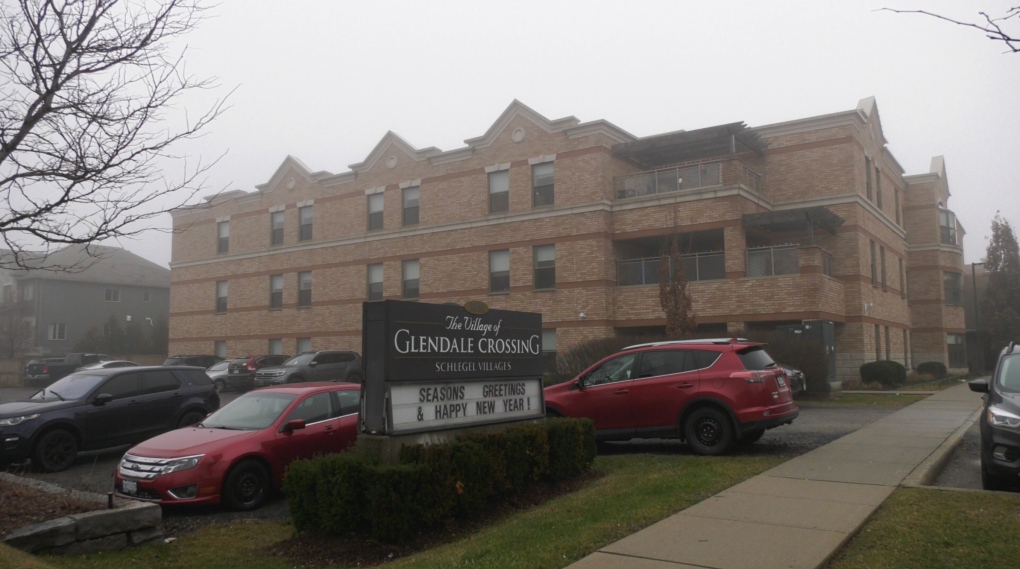Eviction from London, Ont. long-term care home exposes flaws in system
It’s a case that some say exposes flaws in the province’s long-term care system.
Advocates are speaking out after their friend, a vulnerable woman, was evicted from Glendale Crossing long-term care home in London because she hadn’t slept in her room for three months, as she had been in hospital.
“To think that you can be a resident in a home for three-and-a-half years and have that home ripped out from underneath you,” said Corina Morrison, one of two power of attorneys (POA) for Marsha, a 61-year-old who suffers from mental health issues.
Marsha, whose last name is not being used to protect her identity, had been a resident of Glendale Crossing for more than three years, according to Morrison and her other POA, Teresa Hitchen.
In September, Marsha suffered a mental health breakdown and was admitted to the psychiatric ward of London Health Sciences Centre, where she remains. Hitchen and Morrison said that on Dec. 22 they were contacted through email by Glendale Crossing and were told to come and get Marsha’s belongings, as she was being evicted.
 Corina Morrison and Teresa Hitchen, power of attorneys for long-term care resident Marsha. (Bryan Bicknell/CTV News London)
Corina Morrison and Teresa Hitchen, power of attorneys for long-term care resident Marsha. (Bryan Bicknell/CTV News London)
“I was very upset by it, and especially it being the holidays,” explained Hitchen. “You know, her social worker was on vacation, her psychiatrist was on vacation, the public guardian and trustee was on vacation. You know we had no one to reach out to.”
Hitchen and Morrison said that once Marsha becomes well enough to be discharged from hospital she will have nowhere to go. They believe that if she opts to stay in hospital she will have to pay $400.00 per day under the conditions of Bill 7, the province’s More Beds, Better Care Act.
“Discharge her to where? She’ll end up on the street because there is nowhere,” said an exasperated Hitchen.
Peter Bergmanis of patient advocacy group Ontario Health Coalition called the case an “injustice.” A retired health care worker himself, he said he’s never seen anything like it.
“Well I personally can’t comprehend it,” said Bergmanis. “They already have a paying resident. Their money is guaranteed, as I understand it, because they’re on ODSP, and all that has happened to them is that they are unfortunate enough to become ill.”
A spokesperson for Schlegel Villages, the parent company of Glendale Crossing, told CTV News London the home was simply following rules set out by the Ministry of Health and Long-Term Care.
 Glendale Crossing long-term care home in London, Ont., as seen on Jan. 4, 2023. (Bryan Bicknell/CTV News London)
Glendale Crossing long-term care home in London, Ont., as seen on Jan. 4, 2023. (Bryan Bicknell/CTV News London)
In a statement, Kristian Partington said, in part, “There comes a point under regulation when their space in the home may be offered to another person in need through Home and Community Support Services.”
He also pointed to the province’s Fixing Long-Term Care Act which states that the home is only required to hold the room for 60 days in the case of a psychiatric absence.
Jake Roseman, issues manager and press secretary for Long-Term Care Minister Paul Calandra issued a statement to CTV News London that said, “If a long-term care resident has not been living in the home for an extended period of time, their bed may be reallocated to another individual.”
The statement went on to read that the home must give notice to the resident’s substitute decision maker “as far in advance as possible” — something that never happened, according to Hitchen and Morrison.
“The Village of Glendale Crossing is always saying, ‘This is your home, this is your home.’ Well, when do we kick people out of their home?” asked Morrison.
CTVNews.ca Top Stories

Ontario Premier Doug Ford threatens to cut off energy to U.S. in response to Trump's tariffs
Ontario Premier Doug Ford has threatened to cut off energy supply to the U.S. in response to the tariffs President-elect Donald Trump plans to impose on all Canadian imports.
Elon Musk calls Justin Trudeau 'insufferable tool' in new social media post
Billionaire Elon Musk is calling Prime Minister Justin Trudeau 'an insufferable tool' in a new social media post on Wednesday. 'Won't be in power for much longer,' Musk also wrote about the prime minister on 'X.'
Sask. hockey coach convicted of historic sex crime back on day parole after 'behavioural concerns'
A former WHL coach found guilty last year of sexually assaulting a teen boy is back on day parole.
The Body Shop Canada to be sold to Serruya Private Equity
The Body Shop Canada is due to be sold to a company led by the co-founder of frozen yogurt chain Yogen Früz.
Trudeau will have to 'kiss the ring' to achieve smoother bilateral relations with Trump: John Bolton
If Prime Minister Justin Trudeau wants to get on U.S. president-elect Donald Trump's good side for the sake of a smooth bilateral relationship, he'll likely have to be openly deferential, says former U.S. National Security Advisor, John Bolton.
Luxury real estate brokers charged in federal indictment with sex trafficking in NYC
Two luxury real estate brokers and their brother have been charged with luring, drugging and violently raping dozens of women over more than a decade.
Alberta family doctor suspended for unprofessional conduct
An Alberta family doctor and veterinarian has been suspended for unprofessional conduct.
Police locate labyrinth of tunnels connecting tents to generator in Hamilton encampment
Hamilton police say that they discovered a series of 'man-made holes and tunnels' during a patrol of a downtown encampment earlier this week.
Certain foods may disrupt your body's fight against cancer cells, study says
The food you eat may be affecting your body’s ability to fight cancer cells in the colon, according to a new study.


































